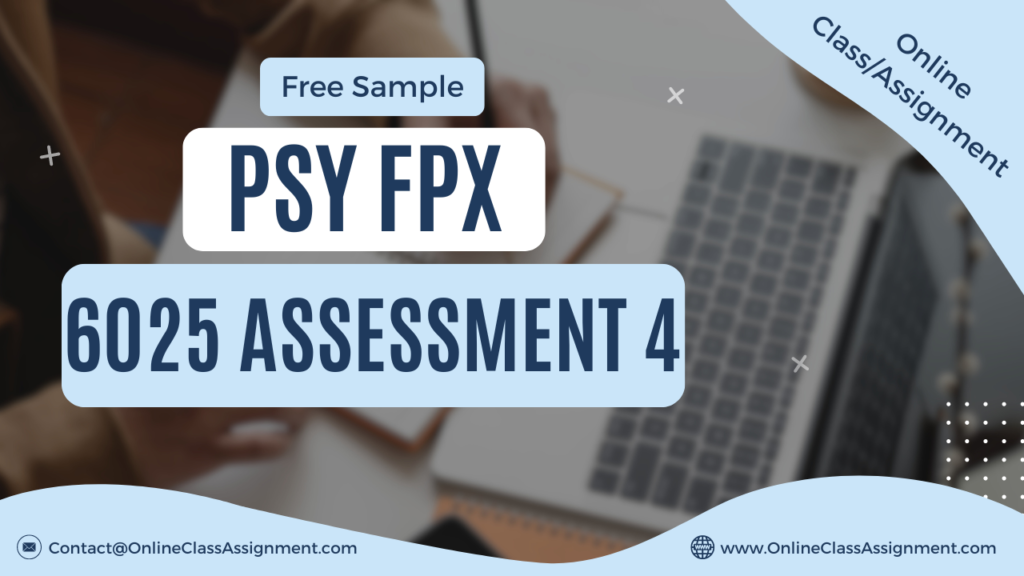
PSY FPX 6025 Assessment 4 Responding to Important Adolescent Development Issues: Media Multitasking
Student Name
Capella University
PSY FPX 6025 Child Psychology
Prof. Name
Date
Introduction
Adolescents in contemporary society find themselves deeply immersed in media, often juggling multiple platforms simultaneously—a behavior known as media multitasking (Cain et al., 2016). For instance, texting while watching television is a common occurrence among this demographic. The ease of access to media anytime, anywhere has fueled this trend, impacting cognitive functions (Cain et al., 2016). With technological advancements making media more accessible and affordable, multitasking has become ubiquitous (Jiotsa et al., 2021). However, research suggests that media multitasking is associated with lower academic performance, impaired cognitive function, and increased impulsivity (Cardoso-Leite et al., 2021).
This report aims to elucidate the impact of adolescents’ multimedia use during study time on their academic performance. It explores how multitasking influences cognitive function, attention, and comprehension. Additionally, it discusses empirically supported intervention strategies for parents to mitigate these effects on their teenagers.
Analysis of How Media Multitasking Affects Adolescents’ Cognitive, Social, Emotional, and Physical Development
Media multitasking can hinder concentration and affect various aspects of development, including cognitive, social, emotional, and physical domains (Konrad et al., 2013). The increasing prevalence of multitasking among youth reflects its integration into developmental processes (Popławska et al., 2021). Fragmented reading, prevalent in today’s fast-paced society, poses cognitive challenges (Xie, 2019). Longitudinal studies link excessive media use in childhood to academic decline and health risks (Mundy et al., 2020; Lüscher & Radtke, 2022). Moreover, fragmented reading and social media engagement may impact cognition and brain function (Feng et al., 2021).
Analysis of the Key Theories and Data
Media multitasking undermines cognitive processes, contradicting the notion of effective multitasking (Eanes, 2023). Urie Bronfenbrenner’s social-ecological model provides a framework for understanding these effects (Eanes, 2023). Surrounding influences, including biological and environmental factors, shape early development (Likhar et al., 2022). Culture influences media consumption patterns, with mass media shaping societal values and behaviors (Liao, 2023).
Behavioral Modification
Behavioral interventions targeting media multitasking include awareness, limitation, and mindfulness techniques (Moisala et al., 2016). These interventions aim to enhance metacognition and reduce media accessibility, promoting focused attention and task completion (Moritz et al., 2019).
Conclusion
Adolescents’ media use during study time profoundly affects their cognitive functioning and academic performance. Addressing media multitasking requires multifaceted interventions at the individual, familial, and educational levels. Continued research is vital to understand its long-term effects and develop effective interventions.
References
Bozzola, E., Spina, G., Agostiniani, R., Barni, S., Russo, R., Scarpato, E., Di Mauro, A. O., Di Stefano, A. V., Caruso, C., Corsello, G., & Staiano, A. (2022). The Use of Social Media in Children and Adolescents: Scoping review on the potential risks. International Journal of Environmental Research and Public Health, 19(16), 9960. https://doi.org/10.3390/ijerph19169960
Cain, M. S., Leonard, J. A., Gabrieli, J. D. E., & Finn, A. S. (2016). Media multitasking in adolescence. Psychonomic Bulletin & Review, 23(6), 1932–1941. https://doi.org/10.3758/s13423-016-1036-3
Cardoso-Leite, P., Buchard, A., Tissieres, I., Mussack, D., & Bavelier, D. (2021). Media use, attention, mental health and academic performance among 8 to 12 year old children. PLOS ONE, 16(11), e0259163. https://doi.org/10.1371/journal.pone.0259163
Feng, J., Hu, B., Sun, J., Zhang, J., Wen, W., & Cui, G. (2021). Identifying fragmented reading and evaluating its influence on cognition based on single trial electroencephalogram. Frontiers in Human Neuroscience, 15. https://doi.org/10.3389/fnhum.2021.753735
Jiotsa, B., Naccache, B., Duval, M., Rocher, B., & Grall‐Bronnec, M. (2021). Social Media Use and Body Image Disorders: Association between Frequency of Comparing One’s Own Physical Appearance to That of People Being Followed on Social Media and Body Dissatisfaction and Drive for Thinness. International Journal of Environmental Research and Public Health, 18(6), 2880. https://doi.org/10.3390/ijerph18062880
PSY FPX 6025 Assessment 4 Responding to Important Adolescent Development Issues: Media Multitasking
Moisala, M., Salmela, V., Hietajärvi, L., Salo, E., Carlson, S., Salonen, O., Lonka, K., Hakkarainen, K., Salmela‐Aro, K., & Alho, K. (2016). Media multitasking is associated with distractibility and increased prefrontal activity in adolescents and young adults. NeuroImage, 134, 113–121. https://doi.org/10.1016/j.neuroimage.2016.04.011
Mundy, L., Canterford, L., Hoq, M., Olds, T., Moreno‐Betancur, M., Sawyer, S. Μ., Kosola, S., & Patton, G. C. (2020). Electronic media use and academic performance in late childhood: A longitudinal study. PLOS ONE, 15(9), e0237908. https://doi.org/10.1371/journal.pone.0237908
Sharma, S., & Behl, R. (2022). Analysing the impact of social media on Students’ academic performance: A Comparative Study of Extraversion and Introversion Personality. Psychological Studies. https://doi.org/10.1007/s12646-022-00675-6
Winstone, L., Mars, B., Haworth, C. M. A., & Kidger, J. (2021). Social media use and social connectedness among adolescents in the United Kingdom: a qualitative exploration of displacement and stimulation. BMC Public Health, 21(1). https://doi.org/10.1186/s12889-021-11802-9
PSY FPX 6025 Assessment 4 Responding to Important Adolescent Development Issues: Media Multitasking
Xie, W. (2019). An analysis of fragmented reading and its social impact on college students in the era of new media. Journal of Contemporary Educational Research. https://doi.org/10.26689/jcer.v3i3.693
Get Capella University Free MS Psychology Samples
PSY FPX 5002
PSY FPX 6710
PSY FPX 5110
PSY FPX 6720
PSY FPX 6730
PSY FPX 6740
PSY FPX 7610
PSY FPX 6O15
